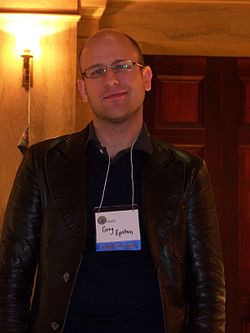Skeptic.com's newsletter eSkeptic features an article called "Quacks and Quakes" by Donald Prothero re: the fools that get airtime due to their faulty predictions of earthquakes:
Yes, that's some sloppy reporting right there. Berkland makes a vague prediction based on complicated, sciencey-sounding terminology; a few months later there's an earthquake somewhere, and a local reporter hails him as a prescient genius. When his next predictions fail to pan out, the media doesn't seem to notice or care. The technical term for that is 'counting the hits and ignoring the misses,' and its brought Berkland some undue attention.

Among those that got their 15 minutes of fame during the post-quake media blitz was a well-known crank, Jim Berkland, who got a full interview promoting his ideas on Fox News on March 17 (but on no other network). First, the reporter put up a map of the “Ring of Fire” of volcanoes and earthquakes around the Pacific Rim, pointed at Chile, then New Zealand, then Japan, and implied that this circle of quakes might end in California. Apparently, he never consulted a geologist, who would have pointed out that each of those regions is an entirely different type of plate boundary and they have no tectonic plates in common. Then Fox gave Berkland a full five minutes to spout his ideas, with the same credulous reporter tossing him softball questions, and no rebuttal from any other geologist or seismologist.
Yes, that's some sloppy reporting right there. Berkland makes a vague prediction based on complicated, sciencey-sounding terminology; a few months later there's an earthquake somewhere, and a local reporter hails him as a prescient genius. When his next predictions fail to pan out, the media doesn't seem to notice or care. The technical term for that is 'counting the hits and ignoring the misses,' and its brought Berkland some undue attention.













